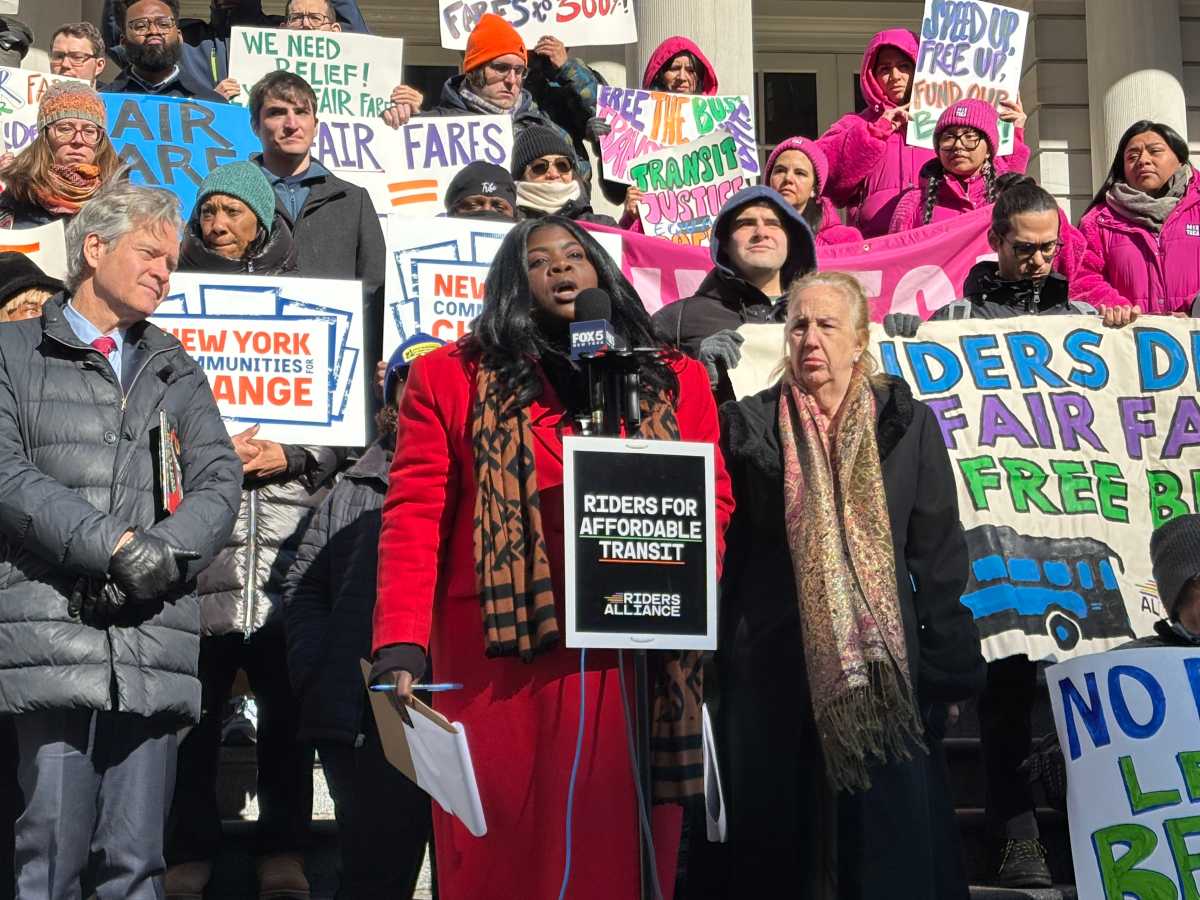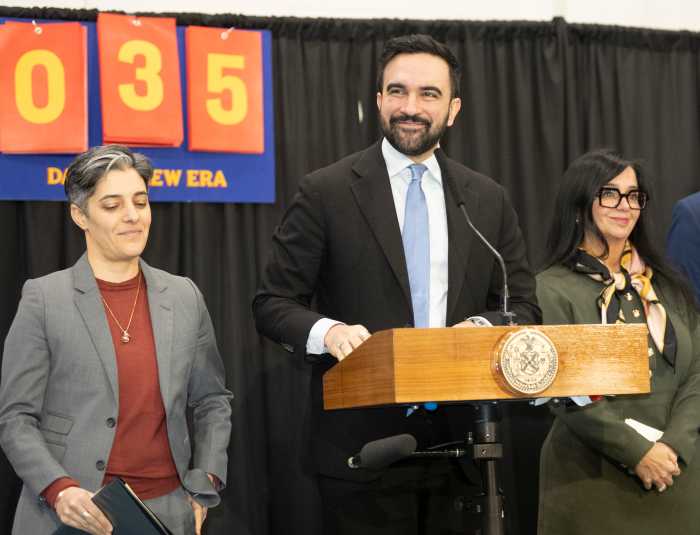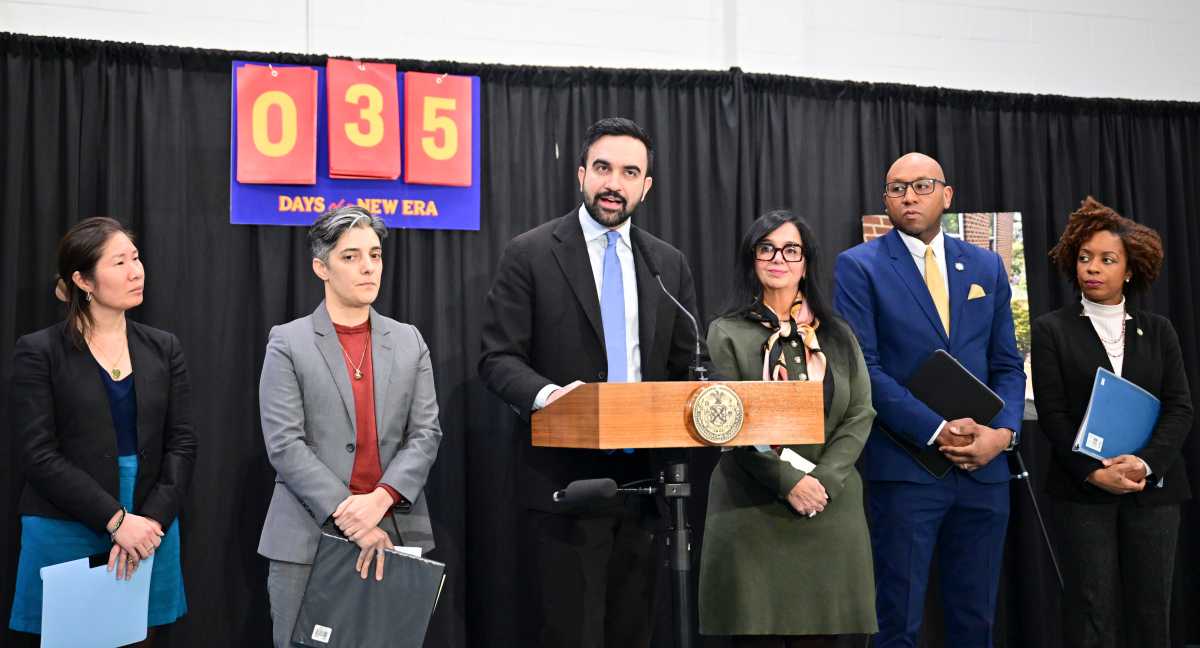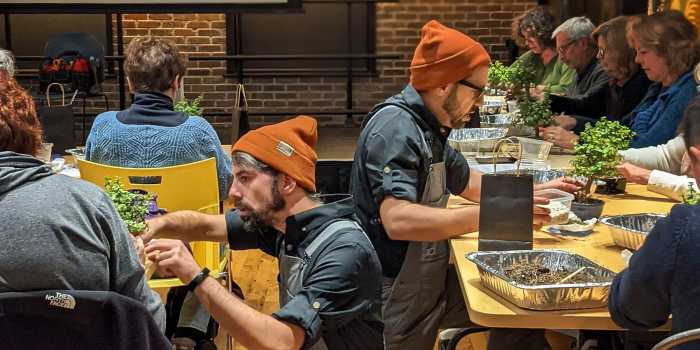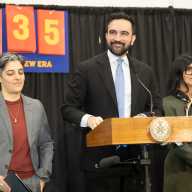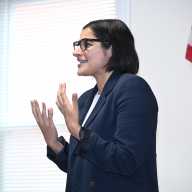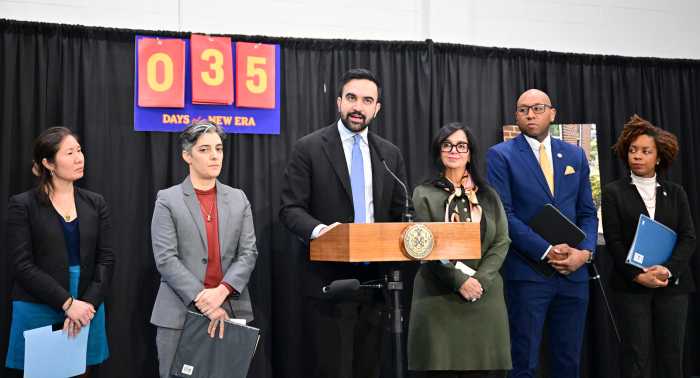Astoria Energy Tech High School students and their families joined the New York Power Authority (NYPA) on Nov. 15 to celebrate the school’s new hydroponic lab that will grow herbs and vegetables year-round in a soil-free garden and be supplemented by a sustainability and food justice curriculum.
NYPA held a ribbon-cutting ceremony in the ninth grade Living Environment classroom with New York Sun Works and elected officials, followed by a tasting of classroom-grown fresh basil with tomato and mozzarella with the Energy Tech High School community.
The new green lab, which is a hydroponic system with seeding stations, a tower garden, hanging vines and a composting station, will grow herbs and kale and will ultimately be made available to AP environmental science classes and a Green Team after-school program.
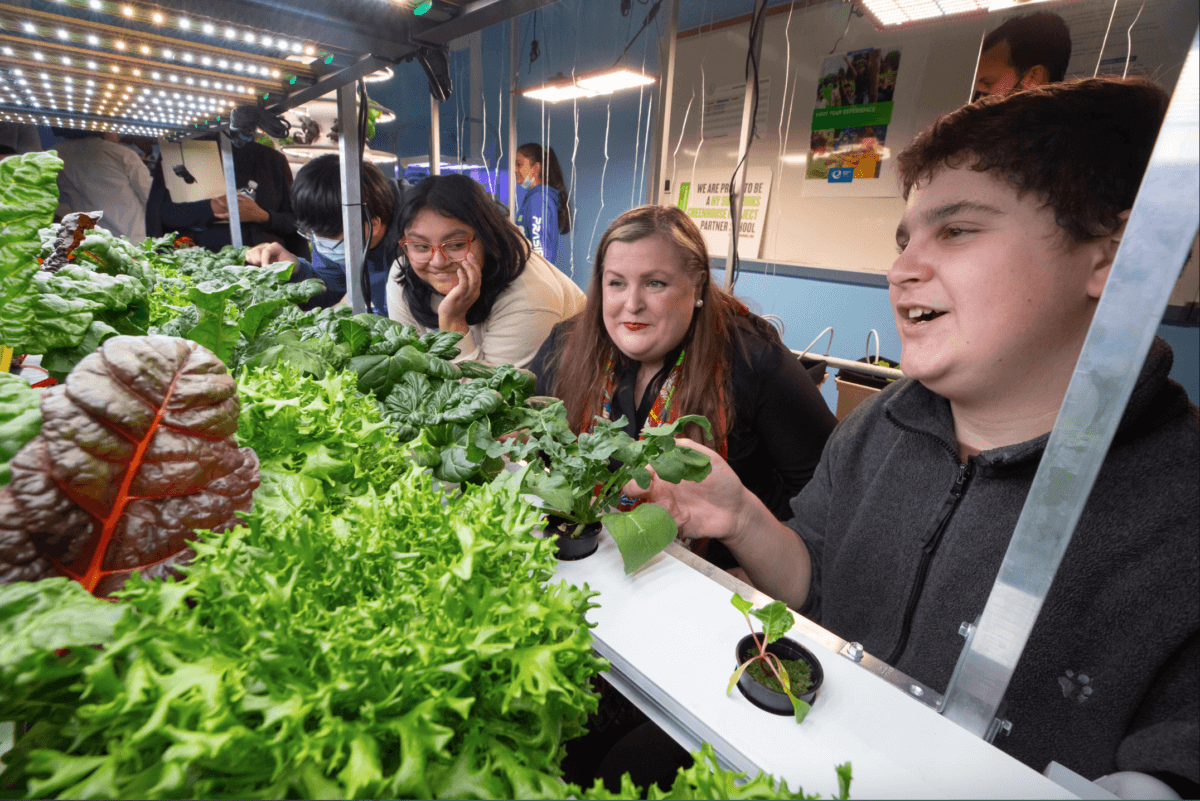
Led by NYPA’s Environmental Justice team, the collaboration builds on a nationally respected Pathways in Technology Early College High Schools (P-TECH) program, which offers paid internships to help high school students learn workplace skills and gain the education needed to pursue science, technology, engineering and mathematics (STEM) careers.
“NYPA is pleased to support the Energy Tech High School learning lab that will bring new opportunities to students who want to prepare for skilled in-demand clean energy jobs and go on to personally rewarding careers,” said NYPA Interim President and CEO Justin Driscoll. “NYPA supports New York state’s long-standing commitment to creating a more diversified, highly skilled workforce and these creative STEM and sustainability programs ignite young people’s interest in the energy and environment fields.”
According to Driscoll, students will learn about sustainable food production and environmental science as part of the education they need to become the next generation on the front lines of fighting climate change.
This is NYPA’s first lab developed with a partner in the P-TECH program, which offers six-week summer internships to help students from historically disadvantaged communities develop professional skills needed to land jobs in New York’s growing clean energy workforce and economy.
“Megacities like New York will increasingly become responsible for producing locally grown food using sustainable practices to feed its growing population. The P-TECH model brings together educational professionals and industry leaders to create hands-on learning experiences that empower students to create the sustainable communities of tomorrow,” said New York P-TECH Leadership Council Director Diallo Shabazz. “New York Power Authority’s support for the new hydroponics lab at Energy Tech High School will provide opportunities for students to learn about the evolving industry of urban agriculture, and provide the technical training and credentialing to qualify them for careers in this new world of work.”
NYPA provided funding for the lab and partnered with New York Sun Works, a nonprofit organization that uses hydroponic technology to educate young people about STEM, climate and sustainability, and provides curriculum, training and community engagement support.
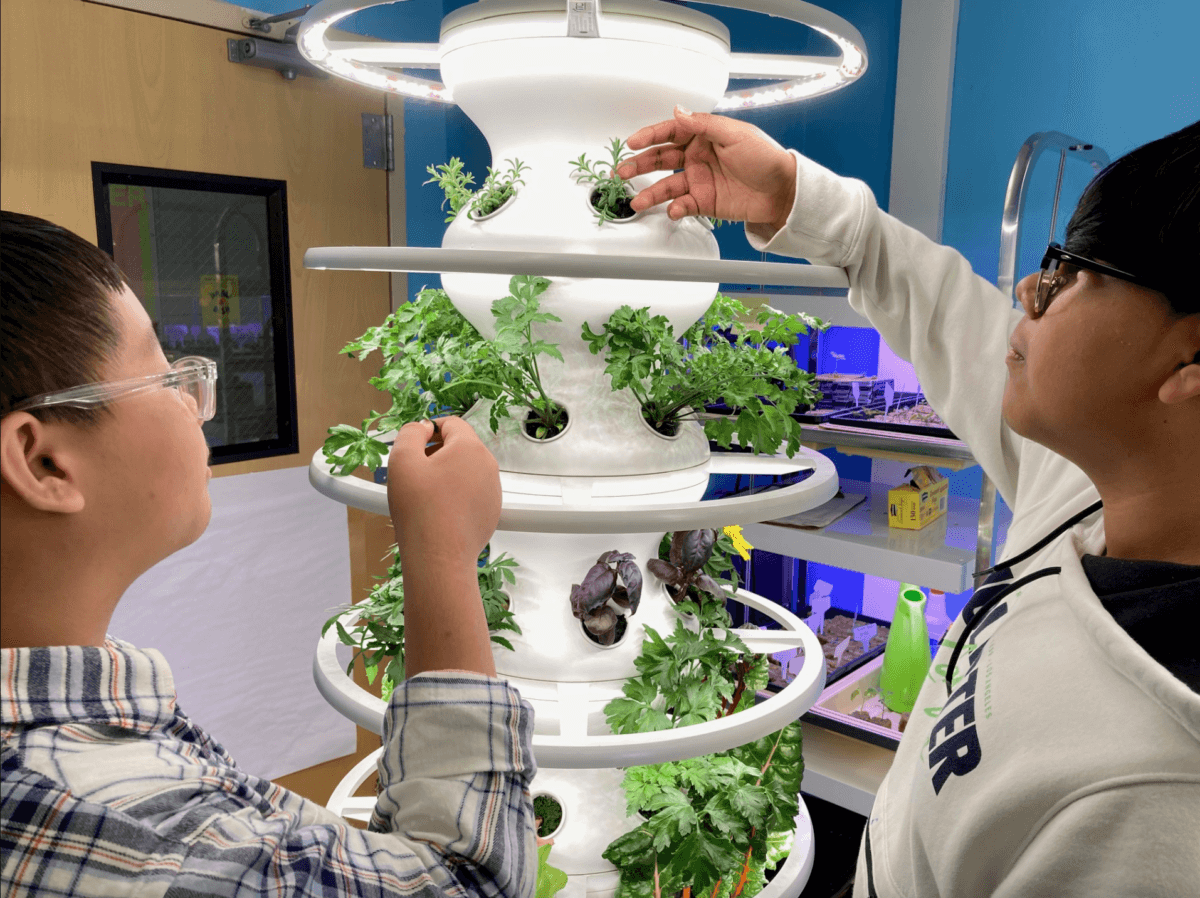
“We are honored to partner with Energy High School to bring 21st-century climate and sustainability science education into the classroom. Our progressive and innovative curriculum uses hydroponics systems to connect students with opportunities in STEM education and food justice,” said Manuela Zamora, executive director of New York Sun Works.
Energy Tech has had students in the P-TECH program for the last two summers to help them land competitive jobs in STEM fields. As an industry partner NYPA has provided mentorship, college and career readiness workshops and a total of 14 paid internships to Energy Tech students.
“Our new hydroponic lab has been welcomed with great enthusiasm by our school community. Through this partnership, students are provided with enriching classroom instruction focused on the science of sustainability, engaging and high interest hands-on learning, and access to the healthy foods that they have helped to cultivate,” said Energy Tech Principal Hope Barter. “The program also contributes to students’ knowledge of additional green career pathways and areas of STEM study. We greatly appreciate our partners at New York Power Authority and NY Sun Works for bringing us these valuable opportunities.”
NYPA has funded 18 green classrooms and two green community laboratories in New York City over the past three years. The average New York Sun Works hydroponic classroom produces more than 500 pounds of vegetables per school year.
As part of its community engagement activities, NYPA’s Environmental Justice team provides workshops on STEM education throughout the state, programs on energy literacy/weatherization and electric transportation, and energy services projects. In 2020, an indoor farming project was launched in Buffalo to increase the year-round production of fresh fruits and vegetables in areas where they are not readily available.
Lisa Payne Wansley, NYPA’s vice president of Environmental Justice, said the green classroom program motivates students with hands-on lessons about growing food in an urban environment and makes it fun to learn about science and technology.
“Energy Tech High School has been an enthusiastic partner and is diligently preparing its students to be active participants in New York State’s increasingly high tech, clean energy future,” Wansley said.
Councilwoman Julie Won said she’s happy to support a climate-friendly project like the new green classroom at Energy Tech High School, that teaches students how to sustainably grow food in the city.
“As a former woman in tech, I’m proud that NYPA is giving our students the tools to break into STEM careers and creating young leaders that care about the future of our planet,” Won said.


